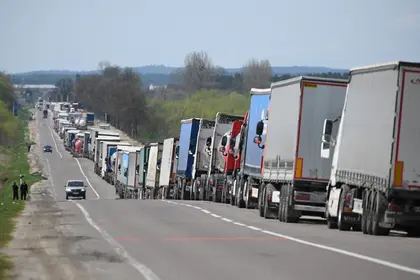The European Commission has implemented a temporary ban on the import of Ukrainian wheat, maize, rapeseed, and sunflower seed to Bulgaria, Hungary, Poland, Romania, and Slovakia. The ban will remain in effect from May 2 to June 5, 2023.
The decision was made under the Autonomous Trade Measures Regulation (ATMR) as a temporary preventive measure due to serious logistical bottlenecks experienced in these five Member States.
JOIN US ON TELEGRAM
Follow our coverage of the war on the @Kyivpost_official.
However, these products may still circulate within or transit via these countries, by means of a common customs transit procedure or be exported to a country outside the EU. Additionally, Bulgaria, Hungary, Poland, and Slovakia have committed to lift the unilateral measures they previously imposed on these products from Ukraine.
The Commission stated that these measures are part of an overall support package, which will be complemented by financial aid for farmers in the five Member States and further measures, to facilitate the transit of Ukrainian grain exports via Solidarity Lanes, to other Member States and third countries.
The European Commission also announced that it is ready to reimpose preventive measures if the exceptional situation continues beyond the current ATMR expiry date of June 5. The Commission is also willing to assess the situation within the EU market for other sensitive products.

Ukraine Forces Undergo Nuclear Forensics Training at US Laboratory
The Ukrainian government has not yet responded to the decision of the European Commission. This move could have a significant impact on Ukrainian agriculture, as these five Member States currently represent a significant portion of Ukrainian agricultural exports.
Background
To help Ukraine's struggling economy impacted by war, the EU had temporarily lifted all import restrictions and trade defence measures against Ukrainian companies until June 5.
To ensure that countries in need receive Ukraine's grain, Solidarity Lanes have been established. This is necessary because the war has severely limited Ukraine's access to its Black Sea ports.
The EU-Ukraine Solidarity Lanes have proven to be essential to Ukraine's economy, creating a vital link with the Union while also effectively averting a worldwide food crisis. Regrettably, the surge in traffic at the borders has resulted in significant logistical hurdles, such as increased costs, congested storage facilities and transport routes.
You can also highlight the text and press Ctrl + Enter






